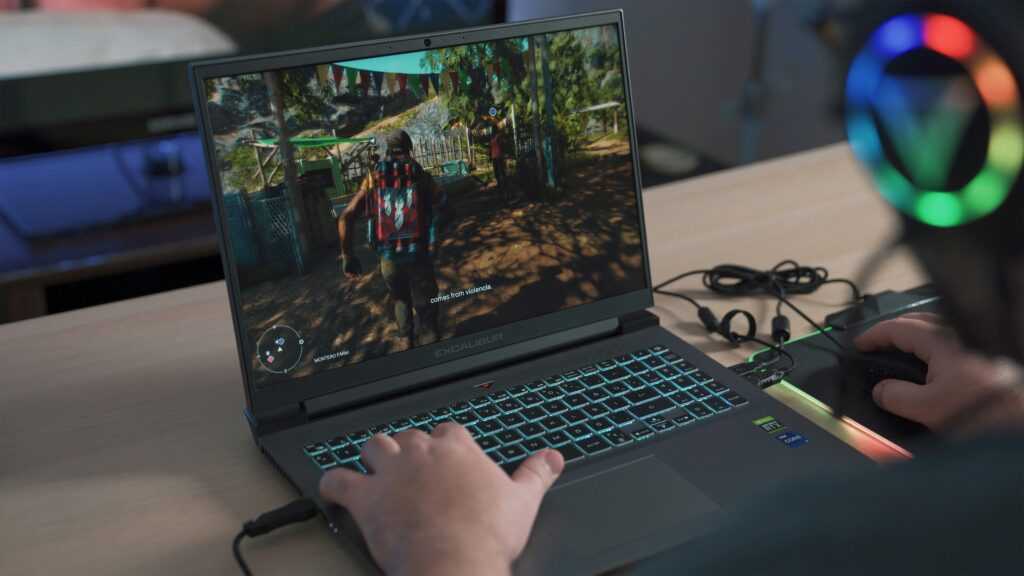The online gambling and video game industries have become increasingly intertwined over the last few years, with gambling platforms no longer happy with offering only basic functions and a simple user experience. As digital entertainment evolves, gambling platforms are starting to offer rich and rewarding experiences for bettors.
A lot of video games are popular because of the way they engage the player, causing many to become lifelong fans. Now, online gambling platforms are starting to catch on to the enormous potential of introducing some proven game design principles to improve user satisfaction.
A Shift in Design Trends
Within the online gambling industry, there are emerging platforms that have already started using some game design principles in their own design. While these sites are similar to major brands, they offer additional features or regional availability and create an innovative gambling experience by providing a game-worthy user experience.
Many Stake alternative casinos fit this profile and have been pushing the envelope. Some offer level-based progressions, achievements, and regular quests like a player would get with RPGs, while others have head-to-head gambling formats that mimic competitive gaming.
These platforms prove that bettors have evolved past simply spinning the wheel or placing bets, and now crave an immersive environment, clear goals, and engaging feedback. It also clearly shows the potential value of applying video game design principles to the online gambling industry.
Progression Systems
While traditional gambling is characterized by randomness, this doesn’t mean the gambling experience has to be completely hit-or-miss. In video games, players have to pass levels, gain experience points, and unlock content to progress and win the game. There are clear goals and achievable points that help players feel like they’ve accomplished something.
By including similar designs in gambling platforms, bettors can feel like they are relying on skill rather than simple luck. Having XP systems would encourage bettors to spend more time or place more bets on the platforms to gain a badge or a rank advancement, for example.
Another great example is mission-based gameplay, where bettors would need to complete daily or weekly challenges to win bonuses or free spins. Platforms could also introduce unlockable features like exclusive games or betting tiers that bettors need to level up to reach.
The key to adding progressive features to an online gambling site is to make bettors feel like they’re working towards a goal, even within a random outcome environment.
Reward Feedback Loops
A reward feedback loop is a psychological technique in both gaming and gambling where an action results in changing rewards and reinforces player or bettor behavior. Some of the most popular games use immediate rewards like loot boxes and kill streaks to keep players hooked.
While online gambling also offers this concept with things like jackpot wins, free spins, and bonus rounds, these feedback loops could be refined and expanded to improve the bettor’s experience.
Smaller, more frequent rewards could be given after each bet, even losing ones, to improve bettor engagement. Rewarding winning or participation streaks means that bettors will keep returning every day, while high-quality animations and sound effects that celebrate a win will make the gameplay more fun and exciting for bettors.
Reward feedback loops can guide the bettor’s behavior in a fun and engaging way, but online gambling platforms that implement this principle will need to keep in mind safeguards for responsible gambling.
Interface and UX Design
The UI design of most video games offers players seamless navigation, real-time feedback, and an immersive environment. On the other hand, many online gambling platforms still have cluttered layouts, slow load times, and poor mobile experiences.
To stay in the game in this highly competitive industry, gambling platforms should consider minimalist dashboards that only show the most important information, so bettors don’t get distracted. Platforms should adapt seamlessly, whether you use them on a mobile or a desktop, and could borrow the swipe and tap mechanisms that are used on mobile game sites.
Online gambling platforms could also change their static feel for a more world-building environment, using animations, avatars, and storylines. Some Stake alternative casinos are already experimenting with UX design.
Social Features
Modern gaming thrives on multiplayer functions, creating a social atmosphere where players can virtually meet up and engage with new friends. While online casinos are traditionally solo experiences, they’re starting to embrace multiplayer features.
Some of these features include live chat and tipping during games or streams, leaderboards for rankings or event participation, and community challenges, where groups compete toward a shared goal.
These features allow bettors to interact, compete, and collaborate, creating a sense of community and fostering loyalty in playing.
Cross-Platform and Personalization
Just like players, bettors now demand that sites work across devices and platforms for consistent, personalized experiences, whether they’re on a desktop, smartphone, or tablet. For gaming companies, tailoring user experiences involves cloud saves, adaptive UI, and AI-based personalization.
For gambling platforms, there are a number of personalization options. They can track user preferences and surface relevant games or bonuses or offer dynamic homepages that show the bettor’s current level, ongoing missions, and available promotions. Another strong option is synchronizing account data, so bettors can use any device to pick up where they left off.
With a player-first design like in game development, online gaming platforms can create more rewarding ecosystems.
Responsible Gaming
While online gambling platforms can greatly benefit from using some game design principles, these platforms must make sure to embed responsible use mechanics into their design. Online gambling has the responsibility to innovate ethically.
By looking at modern game design, gambling platforms can offer progress trackers to visualize the time or money spent or set session limits to remind bettors in a non-intrusive way to take breaks. They could also introduce responsible play milestones to award bettors who use tools like deposit limits or cooling-off periods.
By implementing these features into the structure of the game and not just as an add-on feature, platforms can encourage healthy gambling behavior without killing the fun.
Conclusion
As online gambling continues to innovate and diversify, especially in the crypto and alternative casino industries, platforms can build on video game design for a more engaging, immersive, and user-centric gambling experience.
From progression systems and rewards to improved and personalized UX, there is so much untapped potential when combining gaming and gambling platform designs. Some online casinos are already exploring this concept, and those that learn the fastest from video game design principles are set to thrive in this competitive market.



